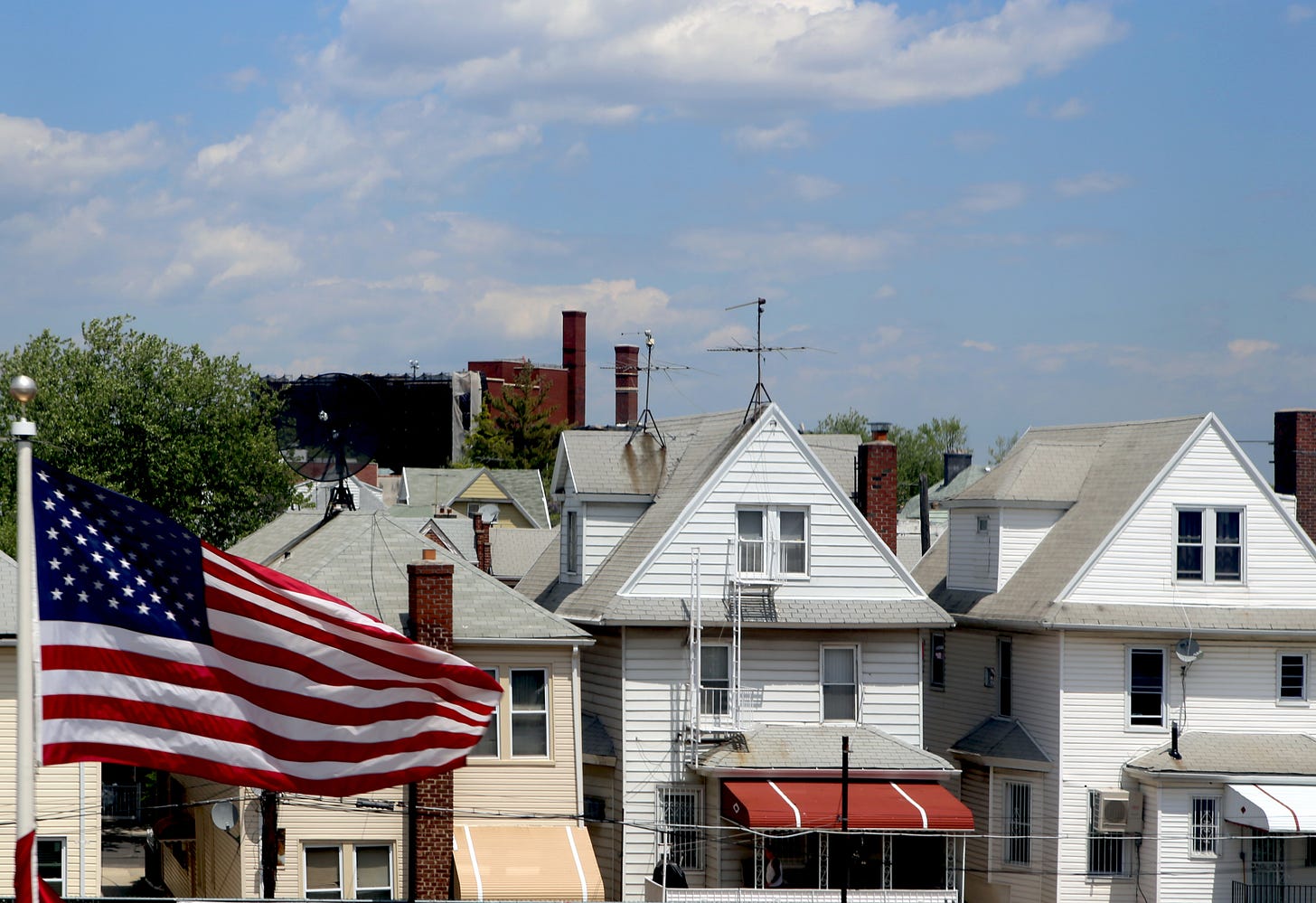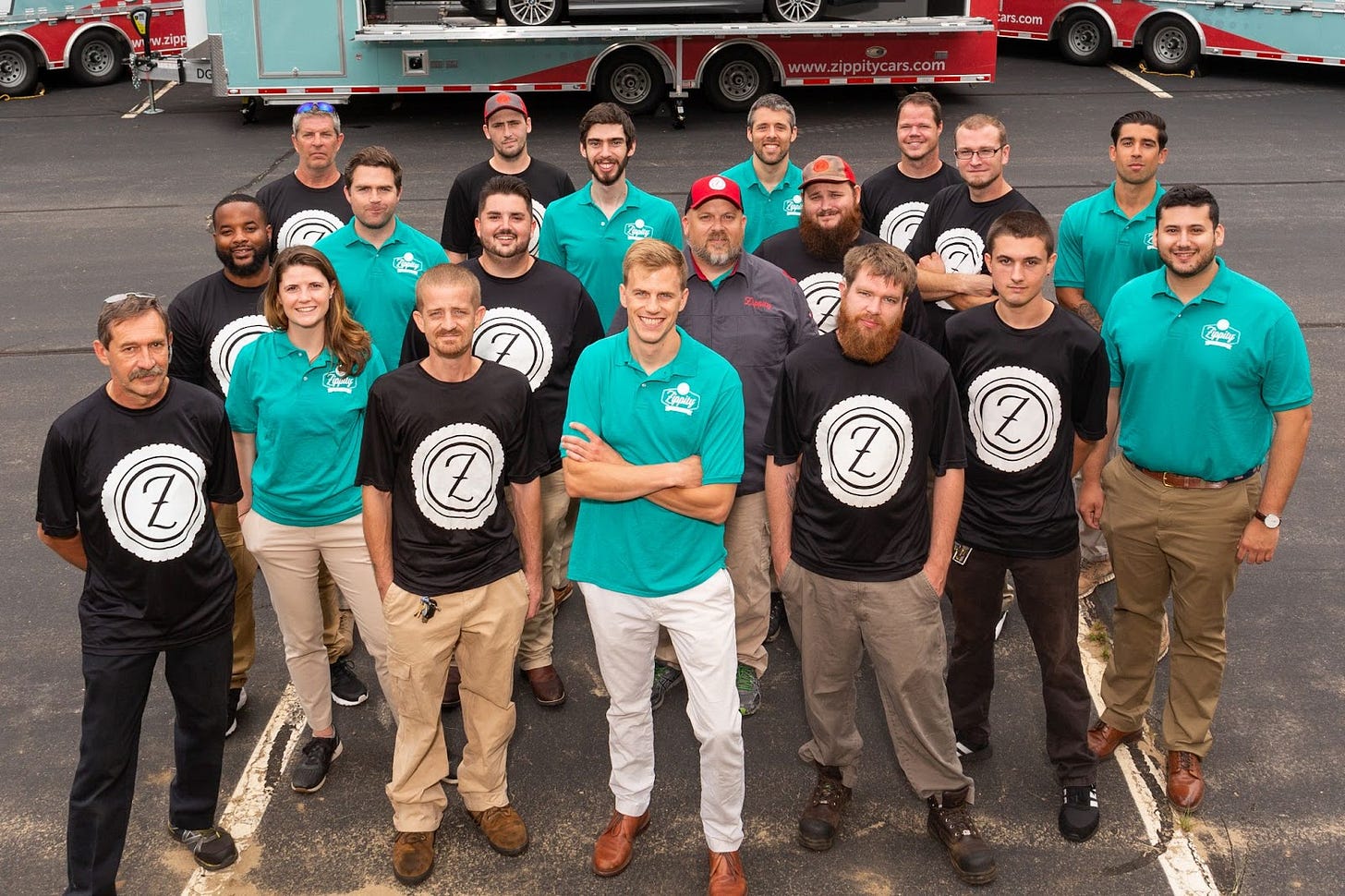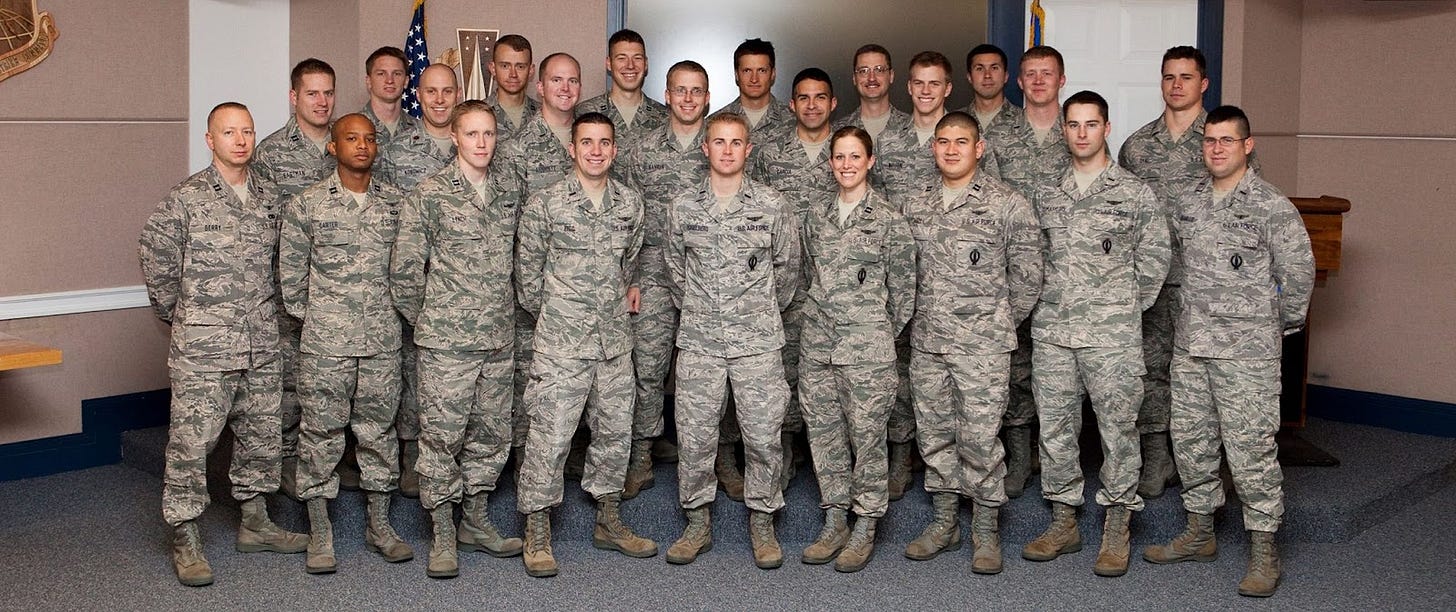Rediscovering Our Shared American Values
What I learned on my journey through small-town America, the military, tech startups, and elite universities.
As Persuasion celebrates its third anniversary, our team is proud of what we’ve achieved—and in need of a little breather. So, for the second half of August, we are republishing some of our favorite essays of the past 12 months.
From Freddie deBoer's essay on why so many apparently successful educated elites are wracked by a sense of profound failure to William Galston's incisive look at the increasingly influential national conservative movement, and from Kateryna Kibarova’s firsthand account of rebuilding in Ukraine to Blake Stone-Banks’ reflections on leaving China after two decades, here is some of the content of which we are especially proud. I hope you enjoy discovering or rereading these texts, and I look forward to sharing a lot of exciting new material with you when we return at the end of the month.
—Yascha
When you opened the front door to my childhood home, you were immediately greeted by an eight-foot construction paper timeline of humanity across our dining room wall. At the far left, God created the Heavens and the Earth. Key figures and events were marked chronologically to the right. Adam and Eve were followed by Noah and the flood. As you moved closer to the present day, the events shifted from religious to secular: the Roman Empire, the Middle Ages, the Renaissance, the American Revolution, the Civil War, the Civil Rights movement.
This exhibit was part of my mom’s commitment to raise faithful, well-informed children. It reflected a childhood that merged religion, civic duty, and the importance of a good education. I perceived no contradiction between any of these themes. They formed the foundation of the simple, practical set of values that my parents taught me every day: work hard and take personal responsibility for your actions; contribute to your community; and treat others with respect.
Over the next couple of decades, my personal journey took me into communities with vastly different political views: evangelical Christians, working-class progressives, military service members, and tech start-up professionals. They held views with which I often disagreed, yet they shared the same substantive values that my parents had taught me. By all participating in the same quotidian challenges and joys of everyday life, these different communities naturally converged on a common value system. They all put in long hours to get ahead in their jobs; they all strove to give something back to their communities; and they were all generally kind to their colleagues and neighbors. This pragmatic virtue was our common creed.
Sadly, political and economic elites on both the left and right are pushing strident, purist ideologies that serve their own purposes, abandoning this broadly-held middle-class virtue. But while the leaders of these movements dominate the news, it is the unheralded, day-to-day behavior of regular people that can help to guide us beyond our current cycle of exhausting ideological squabbles.
In college, I struggled to reconcile my faith and my analytical education. I made a painful break with Christianity and my religious community and adopted many of the liberal political views of academia. When I commissioned into the Air Force in 2008, I found myself as one of the more liberal service members in a conservative organization.
My fellow officers routinely called this out, jokingly referring to me as the “gay-ass-pinko-commie-liberal” for my Obama fandom and outspoken opposition to the Don’t Ask, Don’t Tell policy. I interpreted that label as an irreverent form of inclusion; it was an implicit recognition that our different political views were only peripheral characteristics and not central to our common identity as service members. This was reinforced daily by our shared and all-consuming commitment to military service and the unifying value system that came with it. The Air Force formalized these values as “Integrity first, service before self, excellence in all we do.” My mom could have written them.
When I moved back to New England after the Air Force and began my career in the private sector, I found myself in a liberal community. But the change in political orientation felt insignificant, because the underlying values remained the same. The cleantech start-up that I joined was full of kind, hard-working folks committed to making the world a better place through business. The culture was innovative, collaborative, hard-charging and unapologetically results-oriented. I loved it. Here, as in the military, my colleagues shared a dedication to the company’s mission and to universal, pragmatic values.
By 2015, however, I sensed that kind-hearted reasonableness was losing ground to fervent ideology. Mr. Trump was rising to power on a platform of defiant populism that resonated with Republican primary voters but was far from the kind of behavior that most people would tolerate from their neighbors.
This abandonment of classic values was not limited to the MAGA wing of the Republican party. I began to notice a broad contempt for “traditional American values” on the political left as well. It was more subtle and less egregious, but problematic in its own right.
I became aware of it when I began a graduate school dual degree program from Dartmouth’s Tuck Business School and Harvard’s Kennedy School of Government. These institutions were full of kind, hardworking, and passionate young people eager to make an imprint on the world. The students also tended to come from wealthier backgrounds and to have progressive inclinations.
While the middle-class folks from my previous communities generally agreed that American values and institutions were something to be proud of, despite their flaws, this view was much less acceptable among many of my graduate school peers, who were at the forefront of what would eventually become known as “wokeism.” This passionate subset of students believed that the sins of America’s past necessitated an unsparing and wholesale reinvention of America’s core tenets. It was fashionable among them to condemn an ethos of hard work and personal responsibility as evidence of “White Supremacy culture” or to declare that the American Dream was dead.
I understood the sentiments behind this movement. America has catastrophically failed to live out its ideals on many fronts, and fully appreciating the lasting effects of these failures is key to achieving progress. But this ideology erred by viewing pragmatic American virtue as the driver of—rather than the bulwark against—America’s worst transgressions. To purport that those who still clung to traditional values and behaviors needed to be defeated—or, at least, re-educated—was a declaration of hostility towards average Americans who saw themselves as decent people just trying to get by. The net effect of the movement was to leave the average person feeling morally condemned.
Whatever the motivations behind it, the moral condemnation came to a head in 2016 while I was at Harvard’s Kennedy School. It was the time of Trump’s candidacy and election victory. His voters were from different social worlds than our classmates; they were more likely to come from rural areas and to not have a college education. It was rare that a classmate of mine could name a single close friend who voted for Trump, despite there being nearly 63 million Americans who did so. Buttressed by their ideological framework of condemnation, many were primed to see the worst in Trump voters’ intentions.
“They are sexist,” one student stated tearfully. “How can there be any other explanation?” Another student, in a misguided attempt to be more conciliatory, confidently explained that Trump voters “had been duped.”
During one class, which was full of these types of retrospectives, I pushed back. Perhaps it was misguided to generalize Trump supporters as sexist, dumb, or racist, I suggested. Perhaps they were just fed up with endless wars whose damages disproportionately fell on working-class Americans? Or that the economic losses of the Great Recession had not been regained, and the well-paying jobs they once had were lost to automation and globalization? Or that illegal immigration represented an economic threat to Americans with less education? Or that they resented the disdain and hostility towards working-class police officers despite the extraordinary challenges of that profession? Or that opioid deaths had ravaged their communities, perpetuated by large pharmaceutical corporations? Perhaps they were deeply offended and angry that, rather than truly listening to their frustration and pain, liberal elites declared them “deplorable”?
This perspective was received with a mixture of surprise and confusion, as if these classmates had never truly wrestled with the possibility that the rise of Trump might have been primarily driven, not by hatred and prejudice, but by understandable resentment of the disregard and condescension shown by many liberals.
Unfortunately, many on the left still have not learned this lesson. Six years later there remains a tendency among Democrats to frame issues, not as policy disagreements, but as ideological battles of good versus evil, hatred versus love.
The 2022 midterms were a brief respite from the ideological excess of extremists and a win for moderation, but they did not solve the underlying issues. Democrats may have avoided a typical shellacking and Republicans may have won the House, but neither party has won over middle America or built a cohesive governing framework that addresses its pains and aspirations.
Fortunately, average Americans already show the path forward. Whether or not they enunciate it, they demonstrate a common-sense political doctrine in their personal lives every day. It reveals itself in the mutual kindness they exhibit to their neighbors and colleagues, and in the pride they take in their livelihoods, families, and local communities.
It also shows up in polling. Americans who disagree strongly over hot-button issues demonstrate nearly indistinguishable alignment when asked about core values such as equality, liberty, and progress. It turns out that, for all our differences, most Americans share a worldview of equal rights, personal freedom, and social investment.
Of course, not everyone will focus on what binds us together. There will always be leaders that delight in divisiveness. So our role as Americans is to reject their offerings. We can choose respect, rather than demonization, condescension, or disengagement. It is not easy to break our tribal habits, but it is possible. When confronted with an objectionable viewpoint, we have the power to pause, separate the view from the person who holds it, and respond with respect and, hopefully, a desire to learn more.
America has a strenuous challenge ahead. Ideologues bemoan America’s failures and proclaim “American carnage.” But their shortsightedness and self-interest should not dictate America’s future.
Instead, we should build upon the virtues already integrally woven into our civic DNA. Average Americans give their full measure of devotion by leading decent, honorable lives despite the distractions and disappointments of our current moment. They request very little outside help; they simply want the economic opportunity, social foundation, and basic respect to build lives of meaning for themselves and their children. The task ahead of us is to see the goodness in their example, internalize it, and begin the work of building a more empowering and respectful society.
Ed Warren is a former U.S. Air Force Nuclear Weapons Officer.
This article was originally published on February 13, 2023.
Follow Persuasion on Twitter, LinkedIn, and YouTube to keep up with our latest articles, podcasts, and events, as well as updates from excellent writers across our network.
And, to receive pieces like this in your inbox and support our work, subscribe below:






The article bemoans the erosion of core American values. But it gives itself away by reporting on his condescending dismissal of his classmate’s observation that Americans who voted for Trump were duped. He was duped too if he fails to mention a core value we do share: truth. And that can’t be found in a profligate liar.
It is time to put "woke" to rest, because that only confuses things. The problem is we are all sort of inside out these days. We were at my brother-in-law's eating vegetarians as it puts it. He raises cattle. Many generations many political orientations, from baby diapers to Depend, Republicans, Democrats, and God knows what, I swear we all answered this question the same way: What is a good person? The trouble only starts when you put on your "Identity" mask instead of your human face.